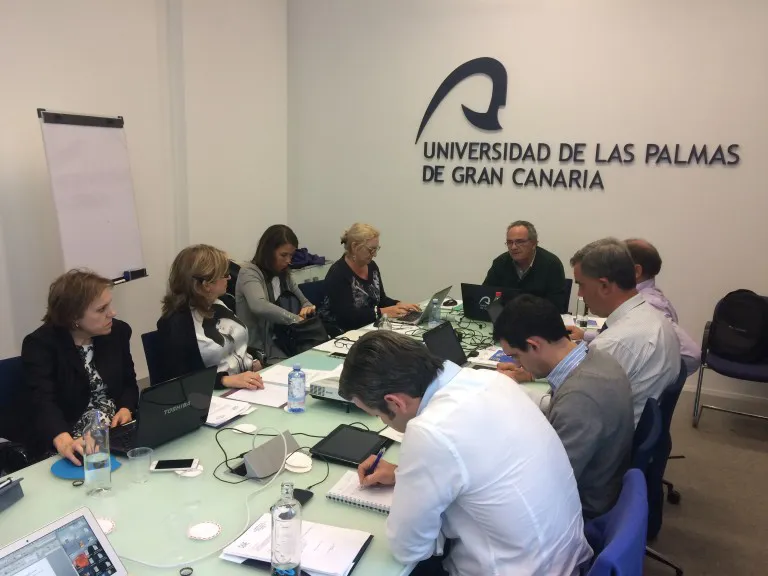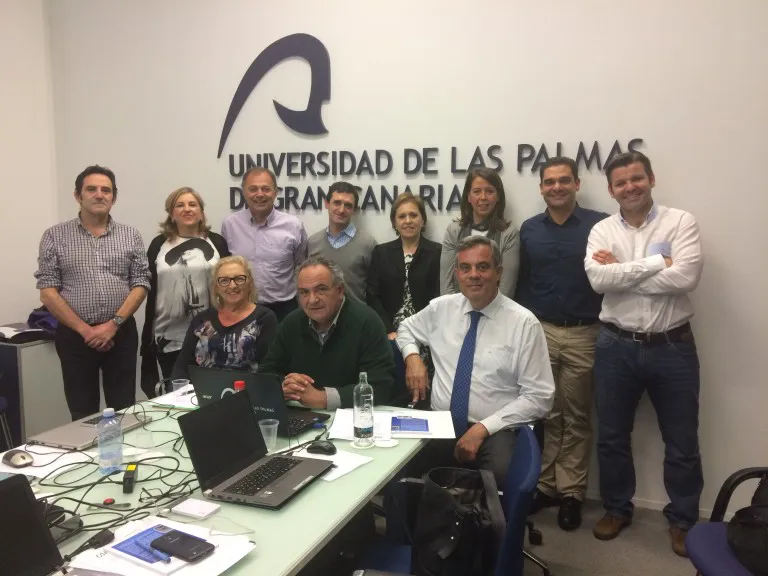 The Faculty of Veterinary Medicine of the University of Las Palmas de Gran Canaria (ULPGC) hosts the meeting of the Conference of Veterinary Deans of Spain on March 10 and 11, 2016.
The Faculty of Veterinary Medicine of the University of Las Palmas de Gran Canaria (ULPGC) hosts the meeting of the Conference of Veterinary Deans of Spain on March 10 and 11, 2016.
The Conference, which brings together the 12 Veterinary Faculties of the country (9 public and 3 private) meet on a rotating basis in the different centers, and its main purpose is to coordinate and improve the training of Veterinarians through management of the Bachelor's degree in Veterinary Medicine.
On this occasion, the topics to be discussed are the development of the ACREDITA plus project for Veterinary degrees. The aim is to match the degree accreditation program carried out by the National Agency for Quality Assessment and Accreditation (ANECA) with the Veterinary Teaching Evaluation program in Europe jointly developed by the European Association of Veterinary Education Establishments (EAEVE) and the European Veterinary Federation (FVE). In addition, a new proposal for quality standards for the evaluation of the Faculties of Veterinary Medicine will be studied, which incorporates new requirements that result in the best training of Veterinarians, but which entails the contribution of more resources to meet these new requirements.
In addition, the results of the quality indicators of the different Faculties such as Graduation Rates, Dropout Rates and Efficiency Rates will be analyzed. Of particular interest is the analysis of the cut-off marks for access to this degree, which for the first time surpass the qualification of 10 (out of 14) in all the Faculties. At the ULPGC, the cut-off mark for the Degree in Veterinary Medicine in the 2015-2016 academic year was 10,890.
The dean of the Faculty of Veterinary Medicine of the ULPGC, Juan Alberto Corbera, highlights that, without a doubt, the social interest in the profession has increased the number of applications for access to the title of Graduate in Veterinary Medicine and, consequently, an increase in the grade of cut, but it must be borne in mind that Veterinary Medicine is one of the most expensive degrees in the Spanish university system due to the requirements established by the European evaluation thereof, and due to the incorporation into Spanish legislation of the special requirements for Veterinary education in the field of Health Sciences. The University must guarantee the availability of the necessary clinical means of the University itself, such as veterinary clinical hospitals (ANNEX II of Royal Decree 420/2015, of May 29, on the creation, recognition, authorization and accreditation of universities and university centers) to which must be added that the EAEVE requires that these centers be owned by the University and not by third parties through agreements.


